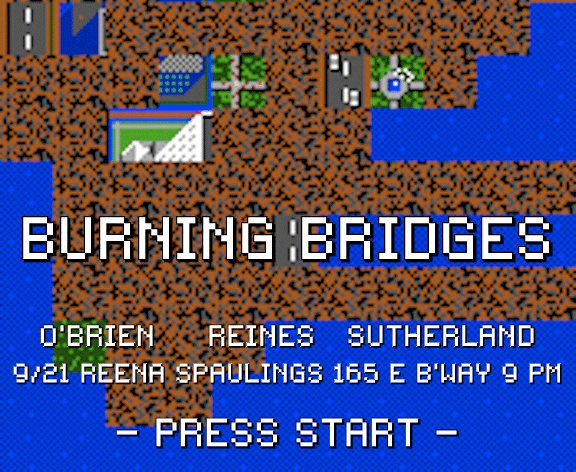 You know that crazy old internet will quickly become a substitute for that lumbering old sun, and I is in the reeds of readyhood. First I will read Drew Kalbach’s spot-the-freak-on essay “Information grab, or what the internet is doing to my poems” over at Actuary Lit, which says which poems are lazy (more lazy poems, please!):
You know that crazy old internet will quickly become a substitute for that lumbering old sun, and I is in the reeds of readyhood. First I will read Drew Kalbach’s spot-the-freak-on essay “Information grab, or what the internet is doing to my poems” over at Actuary Lit, which says which poems are lazy (more lazy poems, please!):
“He’s not being, he’s just nudging and winking. That’s how your poems are lazy. I mean, that’s how my poems are lazy, while they comb through, collect, materialize, and instantiate themselves. These poems are block quotes without the HTML tags. Even when I’m expressing myself, really expressing my innermost feelings and desires, all of which are unique and special and totally worth experiencing, even when I’m doing that I’m stealing from someone else: their form, their words, maybe just some cadence that I heard. Is this just a restatement of intertextuality? Maybe, but intertextuality doesn’t pay enough attention to ctrl+c and ctrl+v. Three finger movements are enough to steal anything. Is that how lazy your poems are? I mean, my poems aren’t lazy so much as they point their fingers at anything but themselves.”
No points for harrumphing about “lazy” poetry until you read the entirety of Drew’s essay and the stuff he links to (I mean c’mon, think how hard your thermostat would work before it would make a comment).
 And then shifting gears: great poems and stories in the well-designed new Beetroot (are circles the new white space in web design?), which I dunno if my favorites in there are lazy or not, even this new positively connotated idea of “lazy,” but they are full of travel and danger and white particle that part like Jello and adzuki beans and bird riding and pee filtering and nobody’s body doing the body things your body does.
And then shifting gears: great poems and stories in the well-designed new Beetroot (are circles the new white space in web design?), which I dunno if my favorites in there are lazy or not, even this new positively connotated idea of “lazy,” but they are full of travel and danger and white particle that part like Jello and adzuki beans and bird riding and pee filtering and nobody’s body doing the body things your body does.
So those are some things you can read, and how you should look when you read them is like the squirrel that I found doing a Google image search for “lazy winter animal poetry.”

 You know that crazy old internet will quickly become a substitute for that lumbering old sun, and I is in the reeds of readyhood. First I will read Drew Kalbach’s spot-the-freak-on essay “
You know that crazy old internet will quickly become a substitute for that lumbering old sun, and I is in the reeds of readyhood. First I will read Drew Kalbach’s spot-the-freak-on essay “

 Y’all y’all y’all what if they made pumpkin spice American Spirits, I would shut down my self-governance, I would sit inside buying raffle tickets, like buying a million, and winning all the books. All the books? You can win the books. That’s real.
Y’all y’all y’all what if they made pumpkin spice American Spirits, I would shut down my self-governance, I would sit inside buying raffle tickets, like buying a million, and winning all the books. All the books? You can win the books. That’s real.
 You might have read about the
You might have read about the